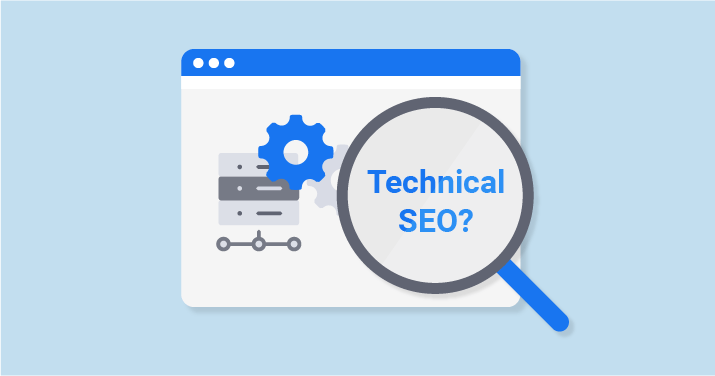In the fast-paced digital landscape, businesses are constantly seeking innovative ways to improve their online presence. One of the most significant developments in recent years has been the rise of artificial intelligence (AI) and its profound impact on on-page SEO strategies. This article will explore how AI is reshaping on-page SEO, the benefits it offers, and practical strategies for leveraging AI to enhance your SEO efforts.
Understanding On-Page SEO
Before diving into the impact of AI, it’s essential to understand what on-page SEO entails. On-page SEO refers to the practice of optimizing individual web pages to rank higher in search engine results and earn more relevant traffic. This includes various elements such as:

Content Quality: Ensuring that the content is valuable, informative, and engaging.
Keyword Optimization: Using relevant keywords strategically throughout the page.
Meta Tags: Crafting effective title tags and meta descriptions to improve click-through rates.
Internal Linking: Establishing a logical structure that helps search engines and users navigate the site.
User Experience (UX): Enhancing page load speed, mobile-friendliness, and overall usability.
With the advent of AI, these traditional strategies are being transformed, allowing businesses to optimize their on-page SEO more effectively.
How AI is Transforming On-Page SEO
1. Content Creation and Optimization
One of the most significant ways AI is impacting on-page SEO is through content creation and optimization. AI-powered tools can analyze vast amounts of data to identify trending topics, user preferences, and relevant keywords. For instance, tools like Jasper and Copy.ai can generate high-quality content tailored to specific audiences, saving time and resources.
Keyword Research Enhanced by AI
AI tools can now analyze search queries and user behavior to suggest long-tail keywords that may not be immediately obvious. This deeper insight allows businesses to create content that aligns with user intent, increasing the chances of ranking higher in search results.
2. User Experience and Personalization
AI is also improving user experience, which is a crucial factor for SEO. Search engines, particularly Google, prioritize websites that provide a positive user experience. AI algorithms can analyze user behavior to identify patterns and preferences, allowing businesses to personalize their content.
Personalized Content Recommendations
For example, AI-driven recommendation engines can suggest relevant articles, products, or services based on users’ past behavior. This not only enhances user engagement but also keeps visitors on the site longer, which can positively impact search rankings.
3. Technical SEO Improvements

AI can help identify and resolve technical SEO issues that might hinder a website’s performance. Tools like SEMrush and Moz use AI to analyze websites and provide insights on areas that need improvement, such as broken links, slow load times, and mobile usability.
Automated Audits
AI-powered tools can conduct comprehensive site audits in a fraction of the time it would take a human. These audits can pinpoint issues and provide actionable recommendations, making it easier for businesses to maintain optimal on-page SEO.
4. Enhanced Analytics and Reporting
AI-driven analytics tools can provide deeper insights into user behavior, traffic sources, and conversion rates. By leveraging machine learning algorithms, these tools can identify trends and patterns that may not be apparent through traditional analytics.
Predictive Analysis
With predictive analytics, businesses can forecast user behavior and adjust their SEO strategies accordingly. For example, if AI predicts an increase in searches for a specific topic, businesses can create relevant content ahead of time, positioning themselves as thought leaders in that area.
5. Voice Search Optimization
As voice search continues to gain popularity, AI is playing a crucial role in shaping on-page SEO strategies. Voice search queries tend to be more conversational and often longer than text-based searches. This shift necessitates a different approach to keyword optimization.
Natural Language Processing (NLP)
AI technologies, particularly Natural Language Processing (NLP), are being used to optimize content for voice search. By understanding how people naturally speak, businesses can create content that answers questions in a more conversational tone, increasing the chances of being featured in voice search results.
Practical Strategies for Leveraging AI in On-Page SEO

1. Utilize AI-Powered Content Tools
Invest in AI-driven content creation tools that can help generate high-quality articles, blog posts, and social media content. These tools can analyze trends and suggest relevant topics, making it easier to stay ahead of the competition.
2. Optimize for User Intent
Use AI analytics tools to understand user behavior and intent. Create content that answers users’ questions and addresses their needs. This approach will enhance user experience and increase the likelihood of conversions.
3. Implement AI-Driven SEO Audits
Regularly conduct AI-powered SEO audits to identify and resolve technical issues. Tools that offer automated site audits can help you maintain optimal performance, ensuring that your site is always search engine-friendly.
4. Focus on Voice Search Optimization
As voice search becomes more prevalent, optimize your content for conversational queries. Use NLP techniques to create content that aligns with how users speak, making it more likely to rank in voice search results.
5. Monitor Trends and Adjust Strategies
Leverage AI analytics to monitor trends in user behavior and adjust your SEO strategies accordingly. Being proactive in your approach will help you stay ahead of changes in search algorithms and user preferences.
Challenges and Considerations

While AI offers numerous benefits for on-page SEO, there are also challenges to consider. Businesses need to ensure that they strike the right balance between AI-generated content and human touch. Authenticity and creativity are essential in content creation, and relying solely on AI may compromise these aspects.
Additionally, as AI technology evolves, so do search engine algorithms. Staying updated on changes and understanding how to adapt your strategies accordingly will be crucial for long-term success.
Conclusion
The impact of AI on on-page SEO strategies is profound and far-reaching. From content creation to technical optimizations, AI is transforming how businesses approach SEO. By leveraging AI tools and techniques, companies can enhance their on-page SEO efforts, improve user experience, and ultimately drive more organic traffic.
At SS TECH SERVICES, we understand the importance of integrating AI into your SEO strategies. As technology continues to evolve, staying ahead of the curve is vital for maintaining a competitive edge in the digital landscape. Embrace the power of AI, and watch your SEO efforts flourish!